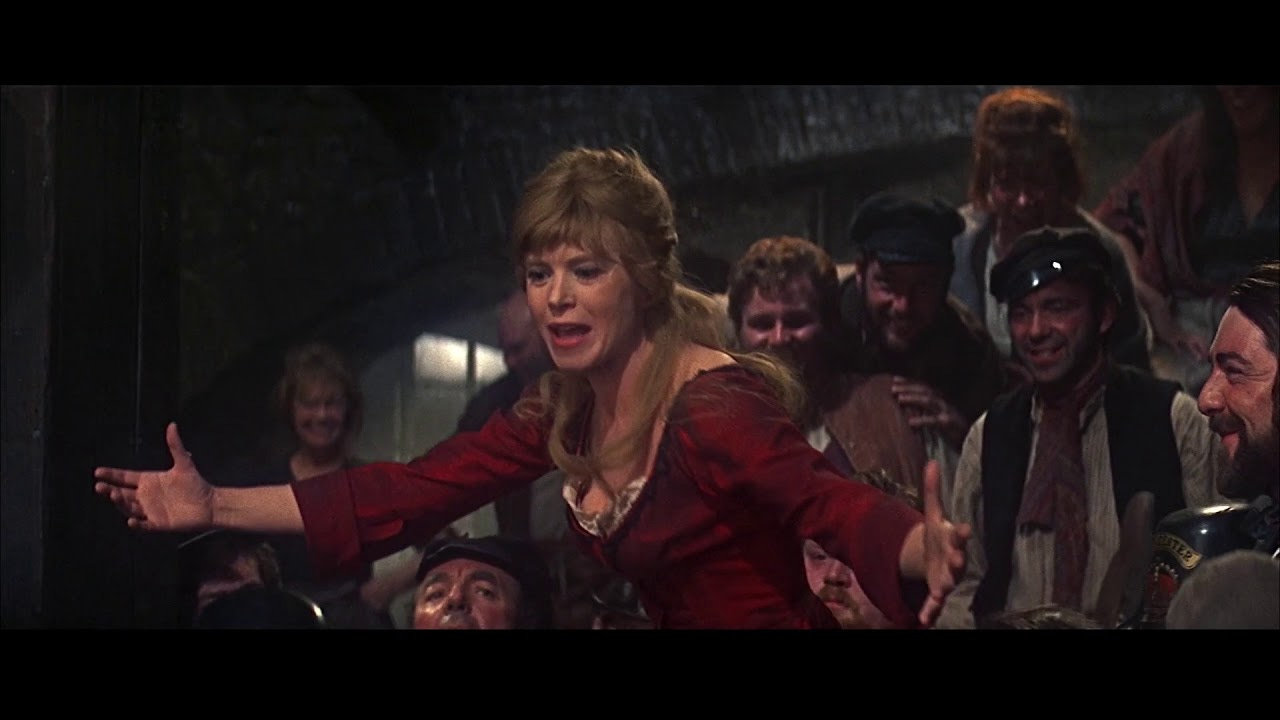Remember this. The people you're trying to step on, we're everyone you depend on. We're the people who do your laundry and cook your food and serve your dinner. We make your bed. We guard you while you're asleep. We drive the ambulances. We direct your call. We are cooks and taxi drivers and we know everything about you. We process your insurance claims and credit card charges. We control every part of your life.
- Chuck Palahnuik, Fight Club
I’m putting The Sentinels first—that is, the types within MBTI who share the Sensing and Judging traits—because no one else will. They certainly won’t. Incidentally, this is just one reason why I love Sentinels. Unassuming, dutiful, practical, and cooperative, it’s a good thing that this group makes up the majority of the population: they are the backone of any society. In fact, the word ‘sentinel’ means ‘guardian or protector’, and this really bears out in terms of their role in society. If Sentinels all decided not to turn up one day, the world would quickly turn into a Lord of the Flies scenario with pigs heads on stakes left, right, and centre (probably).
I like the Chuck Palahnuik quote above for the Sentinels, not because it’s a monologue you would hear actually coming from a Sentinel (they are, generally, far too modest to claim any kind of indispensibility), but because the rest of the world really needs to wake up and start appreciating them. Where the quote is insufficient is that it doesn’t take into account the fact that many Sentinels are in extremely elevated positions within organisations due to their hard work and efficiency—they are often in service-orientated professions, sure, but they are also your CEOs, managers, and business moguls.
In case I’ve painted a picture of Sentinels as merely timid and self-effacing cogs in The Machine, allow me to disabuse you of that notion. Due to their strong Judging feature, Sentinels know their own minds—and if you cross their core moral values and ideals, they will stand firm and resist you to the death. They are fundamentally Good People. However, they don’t suffer fools gladly, and can identify a lack of common paces at a distance of 10,000 feet, and woe betide you if you’re on a team with them but unwilling to pull your weight—they will vaporise you with the most withering comments imaginable (or stares—I’m looking at you, ISFJ). Oof.
So, what books should these down-to-earth do-gooders get cracking with?
ISFJ - The Defender
Who are they?: I have a special fondness for ISFJs. I have a strong suspicion that they are the most undervalued and underrated people in society, and so I am placing them first as an indication of my respect and (very likely) personal indebtedness. Many ISFJs will never take the MBTI test because they’re never really thinking of themselves at all; this type tends to place themselves last, behind the scenes, out of the spotlight. They are the compassionate healthcare workers, the wise and gentle managers who lead from the sidelines, and the kind and long-suffering parents—in short, they have broad shoulders, and we’re all leaning on them for support in one way or another.
Literary doppelgangers: Joe Gargery (Great Expectations), Fanny Price (Mansfield Park), Samwise Gamgee (The Lord of the Rings), Sonya Marmeladova (Crime and Punishment)
I think you’ll like…: If ever there was a novel that centred an ISFJ, understanding and respecting their virtuous reasoning and all-round good sense, it was Jane Austen’s Mansfield Park. This somewhat neglected classic follows the travails and triumphs of Fanny Price, a highly morally sensitive and self-effacing orphan, setting her up as a contrast to her adoptive family and those around her who have been corrupted by wealth and excess. In spite of her timidity, she holds firm throughout as the moral centre of the novel, wherein everyone—including wannabe clergyman and Fanny’s crush, Edmund—fails or falters at some stage. Even in the face of serious temptation (aka wily Bad Boy with serious Don Juan energy, Henry Crawford) Fanny holds fasts to her principles. If anyone dares call her ‘insipid’, as Austen’s own mother once did, I have to assume they were reading another novel.
Why not try?: As a member of the Sentinel crew, ISFJs may not be accustomed to regular flights of fancy, possibly eschewing the fantasy genre in favour of Realism and biographies. However, given how it honours the ISFJ through the wonderful (and absolutely essential) character Samwise Gamgee, showing his loyalty and steadfastness as the key to the rescue of Middle Earth from the threat of the ring, and through its overt light-vs-darkness themes, I believe The Lord of the Rings would be a fantastic literary adventure for the ISFJ. Much like Sam, ISFJs are inclined to stay in even the most (seemingly) hopeless fights right to the bitter end, so long as they believe in the cause enough—even, sometimes, putting themselves in some danger on behalf of others as a result. Lovely ISFJ: make sure that your generous tenacity and capacity to care for others isn’t wasted upon unworthy missions, or those who don’t appreciate you. Because you’re awesome.
Special quote:
“We have all been more or less to blame,” said Edmund, “every one of us, excepting Fanny. Fanny is the only one who has judged rightly throughout; who has been consistent. Her feelings have been steadily against it from first to last. She never ceased to think of what was due to you (Sir Thomas). You will find Fanny everything you could wish.”
Jane Austen, Mansfield Park
ESTJ - The Executive
Who are they?: Get your boss to complete the MBTI test—I’ll give you good odds that they are an ESTJ. There’s a reason that the ESTJ doppelgangers I’ve chosen are all kings. Not only is this type drawn to leadership positions, people are always in a hurry to put them there, whether they like it or not. ESTJs are the types that, if they’re round your house and the phone rings, you’ll see them twitch if you leave it for more than two rings. Heck, leave it for three rings and they might just answer it for you, and probably with better enunciation and a sharp and witty sign off. These guys live life with their foot down, and they don’t stop untul the job is done (and any other number of cliches about hard work and efficiency you can think of).
Literary doppelganger: Julius Caesar (Julius Caesar), Othello (Othello), Bolingbroke / Henry IV (Richard II, Henry IV part 1 & 2)
I think you’ll like…: Alexandre Dumas’ cracking adventure story The Count of Monte Cristo is the perfect read for the ESTJ. Executives, who contain a compelling mixture of integrity and ambition, will really feel the injustice of Edmond Dantes’ fall from grace at the hands of three jealous and malicious rivals right in the gut. Being the kinds of people that pull themselves up by the bootstraps, tearing success from the jaws of defeat, ESTJs will be energised by Edmond’s determination to get back to civilisation from a literal dungeon in the middle of the ocean. I mean, if anyone could claw their way back from the depths of despair, it would be an ESTJ.
The Count is also impressively long—so, when ESTJs are trying to justify the time they’re spending sitting around reading a book when they could be starting their sixth business or running a marathon or climbing K2, they can rest assured that they are really achieving something (but still having fun).
Why not try?: I am mindful that ESTJs tend to end up in positions of authority, regardless of field or background; as such, I’d like to recommend Joseph Heller’s Catch-22. Catch-22 follows a solider stationed in Pianosa during WWII named Captain Yossarian, whose sole aim is to remain alive. That’s it. And while his main adversaries appear to be the opposing army, literally shooting at him while he flies his plane, the novel focuses far more on the threat from his own side—the Colonels and Generals and administrators who are more interested in making themselves look good by keeping soldiers flying missions than preserving the lives of their servicemen. Their main weapons are nonsensical rules, red tape, and arduous bureaucracy; even the title, Catch-22, refers to a clever rule cooked up by the powers-that-be, that soliders wishing to stop flying missions could be dischared by claiming to be mad—the ‘catch’ being that one would have to be sane to want to be discharged, thereby invalidating the request. ESTJs, who tend to be somewhat rigid and rules-focused, leading to slightly more detached mindset when it comes to the workplace, might find this novel a useful (and actually, like, really enjoyable) warning to not let petty rules and restrictions prevent them from seeing their charges as flesh and blood.
Special quote:
Cowards die many times before their deaths, The valiant never taste of death but once.
Shakespeare, Julius Caesar
ESFJs - The Consul
Who are they?: Everyone loves ESFJs. They were the popular kids at school, and, chances are, they’re the top-dog mum at the school gate / everyone’s favourite office water-cooler buddy / the host(ess) with the most(est) in any friendship group. I have an ESFJ pal that has her own hand-written cocktail book in her living room—which she actually needs and uses because, like, she has people round for literal whiskey sours and stuff. Because everyone loves her. Thing is, ESFJs have this uncanny ability to just know how to behave in any given situation—as someone who can be embarrassingly clumsy when it comes to social interactions, their social acuity* is, in my opinion, their superpower. Take any party, gathering, or chance meeting, and the ESFJ has already figured out what to say to everyone and when; they’ll even have remembered where everyone went on holiday, and whether Jean and Gwen have started chatting again. You need at least 5 in your life, I’m telling you.
Literary doppelgangers: Nancy (Oliver Twist), Meg March (Little Women), Mrs Ramsay (To the Lighthouse)
I think you’ll like…: Given their talent for helping the rest of us learn to be normal, I think my lovely ESFJs will get a kick out of Stella Gibbons’ Cold Comfort Farm. Following the death of her parents, when the young and beautiful Flora Poste turns up at Cold Comfort Farm to live with some distant (and distinctly odd) relatives, the Starkadders, the story follows her mission to reform everyone and everything in her path. On one hand, you could look at Cold Comfort Farm as a straightforward comedy—who wouldn’t be amused looking on as Flora convinces her fire-and-brimstone preaching uncle to take his oratory on the road, or as she coaxes her aptly named Aunt Ada Doom out of her bedroom and into some semblance of a social life. However, I see this novel as a story about grief, and the way in which a certain type of person works through their own pain and loss; that is, by ameliorating and soothing the suffering of others, even the most unlovely oddballs imaginable. Such are the ESFJs.
Why not try?: While they are highly principled and altruistic, ESFJs don’t tend to be super political or preachy'; therefore, J. B. Priestley’s slightly sombre and inherently political play, An Inspector Calls, may seem like an odd choice for the ESFJs. However, I believe that the central message of the play will resonate with ESFJs more deeply than any other type. When we meet the Birling family at the start of the play, they are impossible to like—they are evidently dripping with self-satisfaction, viewing their wealth and success as entirely their own to dispense with as they wish. The ESFJs among us will then, inevitably, recoil when the ghostly inspector turns up and cross examines their behaviour towards the less fortunate, drawing out their failings with surgical precision. And when the inspector delivers this body blow of a speech to the Birlings, the ESFJ may be alarmed at the rhetoric—but the core of the message will resonate:
We don’t live alone. We are members of one body. We are responsible for each other. And I tell you that the time will soon come when if men will not learn that lesson, then they will be taught it in fire and blood and anguish.
Special quote:
“The really important kind of freedom involves attention, and awareness, and discipline, and effort, and being able truly to care about other people and to sacrifice for them, over and over, in myriad petty little unsexy ways, every day.”
David Foster Wallace, ‘This is Water’
ISTJ - The Logistician
Who are they?: If I know anything about ISTJs, I know that they love to get everyone jolly well organised. My own dad was an ISTJ, and I’ve heard many stories of how he loved to leave the workplace in such a good state for the use of others that he payed keen attention to every aspect of the environment, right down to sharpening every single pencil. If you have an ISTJ in your workplace, you may not notice them half the time as they busy themselves quietly with the most pressing tasks—but when they’re on annual leave, you’ll know about it for sure. And when things are going wrong, and everyone is losing their heads, the ISTJ has this uncanny ability to sweep in, unflustered and unhurried, asking the right questions and armed with Facts and Logic, to sort everything out.
Literary doppelgangers: Mr Darcy (Pride and Prejudice), Elinor Dashwood (Sense and Sensibility), Isabella & Angelo (Measure for Measure)
I think you’ll like…: I think ISTJs would get a kick out of William Golding’s Lord of the Flies, a book that shows what happens when a careful and unselfish leader doesn’t emerge, and a group is left to suffer unimaginable horrors as a result. Had either Ralph or Eric, the flawed ‘leaders’ of the shipwrecked boys, been ISTJs, the potent combination of an unwavering sense of duty and conscientiousness with a highly methodical and logical mind may well have meant that the worst fate those public school boys faced on the island may have been acute sunburn. And lack of loo roll (the horror!). Golding’s straightforward and matter-of-fact style is likely to appeal to a no-nonsense ISTJ, as will the all-too-realistic display of human nature in the narrative, which will chime with the ISTJ’s understanding of the world.
Why not try?: I suspect that ISTJs aren’t the types to rock up to the theatre on the regular, but I’d like to put out a general appeal for this group not to write off our old friend Shakespeare. His notoriously morally complex Measure for Measure is a clash of two uber ISTJs and, in spite of this type’s disinclination for drama of any kind, the ensuing events are electric. Our heroine is Isabella, a novice with tough-as-nail moral principles, and the play follows her attempt to wrest a pardon from her condemned brother from the (seemingly) rigidly puritanical and authoritarian political leader, Angelo. To Isabella’s dismay, her beauty and purity prove too much for icy Angelo, who, in a lust-induced frenzy of epic proportions, offers Isabella the ultimate indecent proposal. While this ‘problem play’ is often ignored, I think ISTJs are uniquely placed to appreciate it, giving them much food for thought about how to marry their strong moral instincts with their drive to protect others, and their absolute hatred of hypocrisy. Watching this play with an ISTJ would be quite the experience, I think.
Special quote:
Basically anything that comes out of Mr Darcy’s mouth. I know Big D is commonly thought of as an INTJ, but this is, in my opinion, incorrect. His respect for tradition, mingled with a strong (and somewhat rigid) moral instinct place Darcy firmly among the Logisticians.
A sample of Darcy’s spicy zingers for your delectation:
“Nothing is more deceitful…than the appearance of humility. It is often only carelessness of opinion, and sometimes an indirect boast.”
“There is, I believe, in every disposition a tendency to some particular evil—a natural defect, which not even the best education can overcome.”
“The power of doing anything with quickness is always prized much by the possessor, and often without any attention to the imperfection of the performance.”
*being the sort of person to say the phrase ‘social acuity’ probably doesn’t help with the whole social awkwardness thing.





